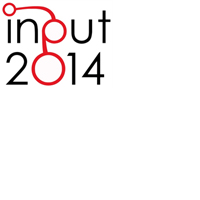Smart Dialogue for Smart Citizens: Assertive Approaches for Strategic Planning
Abstract
It is very important to know how to communicate, but even more important is knowing how to listen. There is no dialogue without listening. Listening and speaking can generate a virtuous cycle that, enriching the field of information, allows the introduction of essential elements of innovation. It is relevant in this context the assertive ability of who manages and coordinates the decision-making processes. The potential of new approaches based on assertiveness are the new frontier of research discipline that is able to meet future challenges aiming to contribute to the construction of places and forms of living together in the growing interest of fairness and justice. Assertive facilitator knows how to guide difficult people and handle very hard situations without adopting manipulative behaviors. He is able to detect the potential conflict and to bring to light the reasons for disagreement , softening the tone and avoiding any possible uncontrolled escalation. He encourages debates and open discussions; he has to build links too, fueling reports profits, collaborating with others toward common goals; speaking and discussing in groups and among groups; seeking solutions in which, both parties, come out winning. So the view expressed is argument of discussion in the development of the tools of urban structure, with the aim of implementing a participatory methodology in the development of planning tools. We propose an application in the series of meetings of initial preparatory participation to the formation of a Preliminary Plan for a medium size town.Downloads
References
Alberti, R.E., Emmons, M.L. (2001), Your Perfect Right: Assertiveness and Equality in Your Life and Relationships, Impact Publishers.
Anchisi, R., Gambotto, D.M. (1992), Non solo comunicare. Teoria e pratica del comportamento assertivo, Cortina, Torino.
Bower, S.A., Bower, G.H. (1991), Asserting Yourself: A Practical Guide for Positive Change, Da Capo Press, USA.
Bobbio, L. (2000), “Le strategie dei processi decisionali inclusivi”, in Centro Studi PIM, Strumenti per la valutazione e il governo delle trasformazioni indotte dagli interventi infrastrutturali, Milano.
Bobbio, L. (2003), La democrazia non abita a Gordio. Studio sui processi decisionali politico-amministrativi, FrancoAngeli, Milano.
Borri, D. (1998), “Postfazione”, in Forester J., Pianificazione e potere. Pratiche e teorie interattive del progetto urbano, Dedalo, Bari.
Carley, M., Christie, I. (1992), Managing Sustainable Development, Earthscan, London.
Davidoff, P. (1965), “Advocacy and pluralism in planning”, in Journal of the American Institute of Planners, 4.
De Sario, P. (2005), Professione facilitatore. Le competenze chiave del consulente alle riunioni di lavoro e ai forum partecipati, FrancoAngeli, Milano.
Friedmann, J. (1973), Retrackting America: a theory of transactive planning, Anchor Press/Doubleday, New York.
Geddes, P. (1915), Cities in evolution, William & Norgate, London.
Ginsborg, P. (2004), Il tempo di cambiare. Politica e potere della vita quotidiana, Einaudi, Torino.
Habermas, J. (1986), Teoria dell’agire comunicativo, Il Mulino, Bologna.
Livolsi, M. (2003), Manuale di sociologia della comunicazione, Editori Laterza, Bari.
Lloyd, S.R. (2001), Developing Positive Assertiveness: Practical Techniques for Personal Success, Crisp Publications, USA.
March, J.G., Olsen. J.P. (1993), “L’incertezza del passato: l’apprendimento organizzativo in condizioni di ambiguità”, in March J. G. (ed.), Decisioni e organizzazioni, Il Mulino, Bologna.
Musco, F. (2006), “Fatica di partecipare”, in Indovina F. (ed.), Nuovo Lessico Urbano, FrancoAngeli, Milano.
Muzzarelli, F. (2012), Assertività. Come comunicare con efficacia nelle situazioni difficili, Audiolibro, Il Campo, Bologna.
Reid, M., Hammersley, R. (2000), Communicating Successfully in Groups., Psychology Press.
Sclavi, M. (2000), Arte di ascoltare e mondi possibili. Come si esce dalle cornici di cui siamo parte, Le Vespe, Pescara.
Schütz, A. (1970), On phenomenology and social relations: Selected writings, University of Chicago Press, Chicago.

Copyright (c) 2014 Tema. Journal of Land Use, Mobility and Environment

This work is licensed under a Creative Commons Attribution 4.0 International License.
Authors who publish in this journal agree to the following:
1. Authors retain the rights to their work and give in to the journal the right of first publication of the work simultaneously licensed under a Creative Commons License - Attribution that allows others to share the work indicating the authorship and the initial publication in this journal.
2. Authors can adhere to other agreements of non-exclusive license for the distribution of the published version of the work (ex. To deposit it in an institutional repository or to publish it in a monography), provided to indicate that the document was first published in this journal.
3. Authors can distribute their work online (ex. In institutional repositories or in their website) prior to and during the submission process, as it can lead to productive exchanges and it can increase the quotations of the published work (See The Effect of Open Access)
